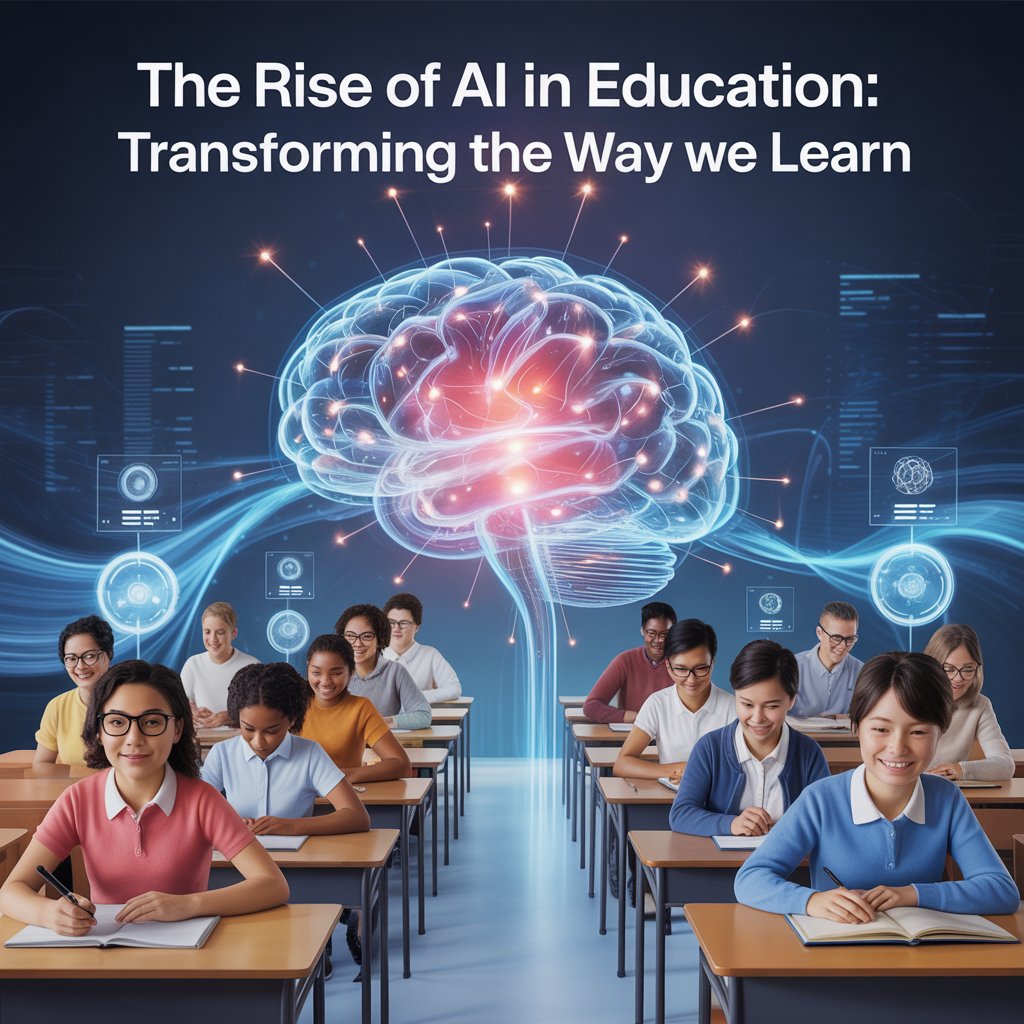In today’s fast-changing world, technology is shaping every aspect of our lives — and education is no exception. From virtual classrooms to interactive tools, students are now learning in ways that were once unimaginable. One area where this change is particularly striking is online assessments, which have made it easier for educators to evaluate learning outcomes quickly and effectively. But beyond assessments, one of the most exciting trends shaping education is the rise of Artificial Intelligence (AI). AI is no longer a futuristic concept; it’s becoming an everyday reality in schools, colleges, and training programs worldwide.
Why AI Is the Next Big Thing in Education
AI is being hailed as the “game changer” for education because of its ability to personalize learning. Traditional classrooms often follow a one-size-fits-all approach, but students don’t all learn at the same pace or in the same way. AI tools can analyze individual performance data and recommend tailored resources, helping learners understand concepts better. For example, AI-powered platforms can identify a student’s weak areas in math or science and generate customized practice exercises to strengthen those skills.
This personalization not only improves student outcomes but also reduces frustration and builds confidence, making learning a more positive experience.
Key Applications of AI in Learning
AI’s impact on education is already visible in several areas:
1. Personalized Learning Platforms
EdTech companies are creating platforms that adapt to each student’s abilities and progress. Tools like adaptive quizzes and smart tutoring systems adjust in real time, ensuring students get the right level of challenge.
2. Automated Grading and Feedback
Teachers spend countless hours grading papers. AI now helps automate this process, especially for multiple-choice and short-answer tests. More advanced systems are even capable of assessing essays, providing instant feedback that saves time and enhances learning.
3. Virtual Classrooms and AI Tutors
AI-powered chatbots and virtual tutors are available 24/7 to answer questions, explain concepts, and guide students through lessons. This offers learners continuous support without always needing a teacher’s direct presence.
4. Predictive Analytics for Student Success
By analyzing student performance data, AI can predict who might be at risk of falling behind. Schools and universities can then intervene early with extra resources, tutoring, or mentoring to improve success rates.
5. Language Learning Tools
AI-driven apps like speech recognition systems make language learning more interactive. Learners can practice pronunciation, grammar, and vocabulary with real-time corrections.
Benefits for Educators
While AI primarily focuses on improving the student experience, it also brings tremendous benefits for educators:
- Time-Saving: Automating repetitive tasks like grading and scheduling gives teachers more time to focus on teaching and mentoring.
- Data-Driven Insights: Teachers can access detailed analytics about student progress, helping them make informed decisions.
- Enhanced Engagement: With AI tools, lessons become more interactive and exciting, capturing students’ attention more effectively.
Challenges of Using AI in Education
Despite its promise, AI in education isn’t without challenges.
- Accessibility: Not all schools can afford advanced AI tools, especially in underprivileged areas.
- Data Privacy: Collecting and analyzing student data raises concerns about privacy and security.
- Over-Reliance on Technology: Education is not just about knowledge transfer; it’s about critical thinking, creativity, and social skills. Overusing AI might reduce the human connection between teachers and students.
Addressing these issues requires careful planning, strong policies, and a balanced approach that combines technology with human interaction.
Future of AI in Learning
Looking ahead, AI is set to become even more integrated into education. We may soon see:
- AI-powered virtual reality classrooms where students can experience historical events or explore scientific concepts firsthand.
- Hyper-personalized learning journeys where each student follows a unique curriculum designed by AI.
- Collaborative AI tools that help students work together on projects while receiving guidance from intelligent systems.
Experts believe AI will not replace teachers but rather act as a powerful assistant, enabling educators to do their jobs more effectively and making learning more engaging for students.
Conclusion
The rise of AI in education marks the beginning of a new era where learning is more personalized, efficient, and interactive. While challenges such as accessibility and privacy must be addressed, the benefits are undeniable. From smart tutoring systems to predictive analytics, AI is creating opportunities that were once beyond imagination.
As schools and universities continue to adopt AI-driven technologies, the future of learning looks brighter, more inclusive, and far more innovative. Just as online assessments revolutionized the way students are evaluated, AI is set to revolutionize the way we learn, teach, and connect with knowledge.
Safety in the Scents: Why Jillian Bear and the Grandpa Scare is the Comfort Read Every Child Needs
Tiger Exchange ID Setup Guide for Smooth Online Cricket Access
The Voice in the Static: How One Father Turned Grief into a Bedtime Masterpiece
The Bear in the Living Room: Charlie Hart’s Heartwarming Debut for the Grandparents’ Generation
